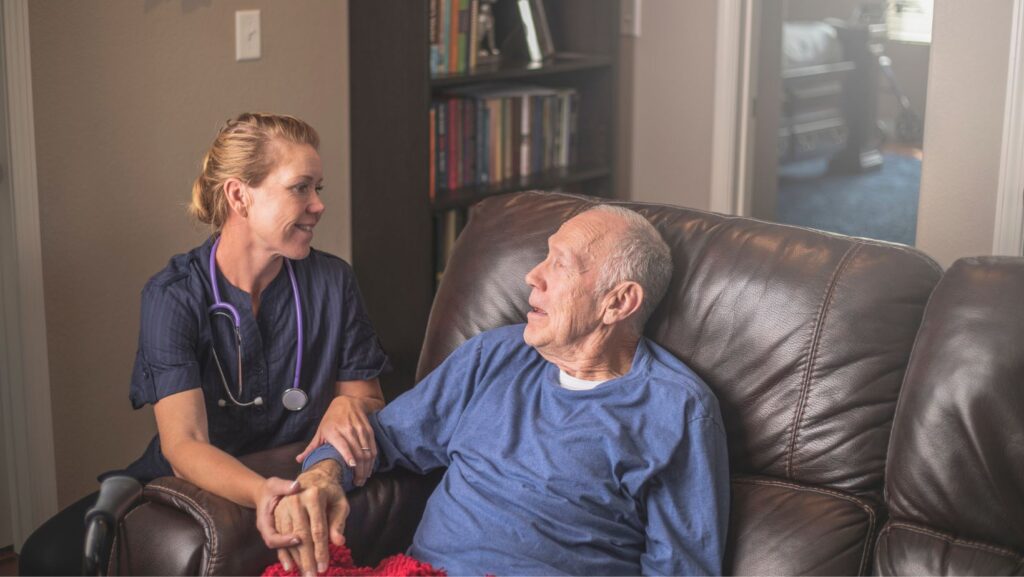
How At-Home Care Improves Seniors’ Quality of Life
Home care allows for personal care, therefore making sure the care extended to seniors exactly meets their needs and personal preferences. Being able to spend one-on-one time means that elderly persons get just the support they require in daily activities, medication, and even emotional needs. Unlike institutional caregivers, perhaps having to share their time and attention with several residents, caregivers providing in-home care can afford to pour more concentrated attention that allows them to be more involved with their clients and establish relationships with them, too. Such personalized attention enhances the quality of care and quality of life for the elderly, as well.
Maintaining Independence
A key benefit of home care is that seniors are better able to remain independent. Perhaps the deepest-seated fear among most elderly is the loss of control over their lives, should they find themselves having to enter either a nursing home or an assisted living facility. The solution afforded through at-home care entails a senior staying in his or her home, surrounded by familiar surroundings and routines. With appropriate assistance, the elderly will still be able to make decisions pertaining to their lives, which helps in cultivating a sense of independence and dignity. In fact, autonomy is important to them for their mental and psychological well-being.
Comfort and Familiarity
Being in a very familiar environment contributes a lot to their general well-being. Home care allows them to be within the comforts of their own homes, which they may finally feel secure and safe within. Often, the home can hold memories, routines, and places that can have comforting emotional associations during this advanced stage of life and its progressions. Doing this may also help elderly people avoid any kind of disorientation or stress associated with relocating to a facility that is unfamiliar with care. This sense of familiarity can mean everything when it comes to emotional stability and happiness.
Flexible and Personalized Care Plans
Home care has been very flexible and can include personalized care plans to address the unique needs associated with each senior.

These plans include everything from simple activities, such as bathing and meal preparation, to more specialized care with medications and medical conditions that can be adjusted according to their needs. The caregivers do all they can to work with the families and health providers to find a schedule and routine that best fits the senior’s lifestyle and will always be adjusted and changed with changing health conditions. This flexibility means that seniors receive the right level of care at just the right time- a factor in the quality of life.
Companionship and Emotional Support
Social isolation is an issue for many seniors, especially among those who live alone. In-home care, even though it constitutes physical support, is also a source of emotional support and companionship. Caregivers become trusted friends with whom seniors have conversations and share life experiences. This social interaction helps reduce the depression and feelings of loneliness that are common in aged persons. This regular companionship resulting from home care assistance may increase emotional well-being in an elderly person, enabling the individual to enjoy life with positivity.
Improved Health and Safety
Home care continues health monitoring and gives support in performing those tasks that become difficult as age advancement takes place, such as medication management, mobility, and hygiene. Caregivers can make the living environment much safer by removing hazards and ensuring that the home is equipped with safety features like grab bars and no-slip mats.

Therefore, this kind of care promotes a safe environment and addresses health needs by reducing the probability of falls, accidents, and complications of health issues, helping to live a long and healthy life.
Reducing the Burden to Family Members
Usually, family members become the caregivers, which in most instances is very exhausting, both physically and emotionally. In the case of at-home care, the way opens worthily with professional assistants, relieving that great quantity of burden off the shoulders of family caregivers. Family members will get to spend their time with their loved ones rather than drowning in all kinds of caregiving matters. Presence itself reassures family members that their elderly family member is taken good care of and treated expertly. This network thus helps in enhancing the comfort level of a senior individual and his or her family member.
Home care plays a significant role in the lives of the elderly by offering personalized care to enable them to live independently with emotional support. This allows seniors to stay in the comfort of their homes amidst familiar surroundings and receive their much-needed care accordingly. At-home care with flexible care plans and companionship, emphasizing health and safety, will allow seniors to age with dignity and happiness. To the families, this is assurance in the mind that a loved one is well taken care of within the home and brings reassurance to the mind.





